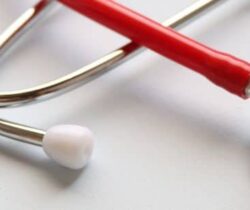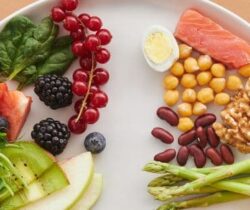Understanding the link between alcohol and pre-diabetes
It’s important for people who are living with pre-diabetes to be aware of the risks involved in alcohol consumption.
This article will help you make informed choices about your alcohol consumption that will enable you to protect your health.
Alcohol consumption and diabetes
The relationship between alcohol and diabetes is complicated.
The Australian Department of Health and Aged Care has stated that alcohol use is never completely safe, a view that was echoed recently by a report from the World Health Organization.
In 2020, the National Health and Medical Research Council (NHMRC) published the Australian guidelines for reducing health risks from alcohol. The guidelines use the ‘standard drink’ as a reference point. A standard drink is one that contains 10 grams of pure alcohol.
Examples are:
- a small glass of full-strength beer (285 ml)
- a 100 ml glass of wine
- 30 ml of spirits.
The NHMRC recommends that healthy men and women should drink no more than 10 standard drinks a week and no more than 4 standard drinks on any one day. Drinking above these levels is considered excessive. Excess alcohol intake can increase the risk of chronic diseases such as cancer and hypertension (high blood pressure).
For a person at risk of and/or living with diabetes, high alcohol intake can lead to high blood glucose levels. For a person living with diabetes, consuming any amount of alcohol has its risks. Here are some of the most common ones.
Alcohol and hypos—‘hypo’ is an informal term for hypoglycaemia, a condition where a person’s blood glucose levels are too low. For people living with diabetes who use insulin, the most serious risk of drinking alcohol is that it causes blood glucose levels to go up and down. If they drop to the point of hypoglycaemia, it’s serious. If the condition is left untreated, a person can experience unconsciousness, seizures and death. It’s important to be aware that symptoms of hypoglycaemia such as drowsiness and confusion can easily be mistaken for drunkenness.
Alcohol and your weight—alcohol consumption can cause weight gain. This is a risk factor for the development of diabetes
Alcohol and carbohydrates—Many alcoholic drinks are high in carbohydrates. For example, a standard beer typically has a high carbohydrate content, as do drinks with mixers that contain a lot of sugar. Too much carbohydrates can raise a person’s blood glucose. This can be a problem for people living with diabetes or those with pre-diabetes who are trying to lower their risk of developing the condition.
Understanding pre-diabetes and its management
Pre-diabetes is a condition where a person’s blood glucose levels are higher than normal but not high enough to be diagnosed as type 2 diabetes. Pre-diabetes often has no warning signs or symptoms. If you have pre-diabetes, you have a 10 to 20 times higher risk of developing type 2 diabetes. However, the onset of type 2 diabetes can be prevented or delayed by making lifestyle changes.
The exact cause of pre-diabetes is unknown, but its risk factors are similar to those for type 2 diabetes.
They can be split into two groups:
- modifiable (meaning that they can be changed)
- non-modifiable (meaning that they can’t be changed).
Modifiable risk factors include your weight, your diet and the amount of exercise you do. Non-modifiable risk factors include your age, ethnicity and your family medical history. A more detailed list of the risk factors can be found here.
Having pre-diabetes does not mean that you’ll automatically develop type 2 diabetes. You can prevent or delay the onset of type 2 diabetes by making healthy lifestyle changes. For most people, this means eating healthy and nutritious food, being physically active and maintaining or reaching a healthy weight. It’s also helpful to manage your stress levels and, if you smoke, quit.
Alcohol and pre-diabetes interaction
As mentioned previously, excessive drinking can interfere with blood glucose balance, which can increase the risk of diabetes. Also, if you have pre-diabetes or diabetes, alcohol can interfere with the positive effects of any medication that may have been prescribed to treat it.
As a general rule, if you have pre-diabetes, it would be beneficial to either reduce your alcohol consumption or stop drinking completely. Reassessing your alcohol intake is one of many ways to address pre-diabetes.
Preventing or delaying the onset of type 2 diabetes
Having pre-diabetes does not mean that you’ll automatically develop type 2 diabetes. You can prevent it by tackling your modifiable risk factors. For most people, this means making more healthy eating choices more often, being physically active and taking steps to make a weight reduction of 5%. It’s also helpful to manage your stress levels and, if you smoke, quit.
Alcohol by volume and diabetes
The following list shows how much alcohol is contained in various drinks. ‘Alc/vol’ (alcohol by volume) is a standard measure of how much alcohol is contained in a given volume of an alcoholic beverage.
- Light beer (2.7% alc/vol)
- Mid strength beer (3.5% alc/vol)
- Full strength beer (4.9% alc/vol)
- Regular cider (4.9% alc/vol)
- Sparkling wine (13% alc/vol)
- Wine (13% alc/vol)
- Fortified wine e.g. sherry, port (20% alc/vol)
- Spirits e.g. vodka, gin, rum, whisky/whiskey (40% alc/vol)
Potential risks and considerations when consuming alcohol with pre-diabetes
If you are living with pre-diabetes and want to drink alcohol, you can ask your doctor any questions you may have. If you choose to drink alcohol, taking the following precautions could be beneficial.
- Eat food before and while drinking alcohol.
- Drink water before you drink alcohol so that you are not thirsty.
- Drink alcohol slowly. Take small sips at a time.
- Avoid binge drinking or drinking for a long period of time.
- Check the label on your drink to see how many standard drinks it contains. Remember that drinks served in pubs, bars and restaurants are often served in larger glasses and can contain more than one standard drink.
- Avoid sweet wines, cordials, sugary soft drinks and fruit juice as mixers. Mix alcohol with soda water or the diet versions of soft drinks e.g. Diet Coke or Diet Lemonade.
- Alternate drinking alcoholic drinks with nonalcoholic drinks such as sparkling water or diet lemonade.
Consider having days where you do not drink any alcohol regularly. As mentioned, alcohol consumption can contribute to weight gain. This is a risk factor for the development of type 2 diabetes.
How the Life! program can help you
Drinking alcohol can be problematic if you have diabetes; and if you don’t have diabetes, alcohol can increase your risk of developing it.
Finding out if you have pre-diabetes and treating it early is important. Making healthy lifestyle changes can help you to prevent or delay the onset of type 2 diabetes.
The Life! program can give you support, resources and knowledge to help you live a healthier life.
Life! is a free healthy lifestyle program that helps you improve your eating habits, increase your physical activity and manage stress. You can choose from a group course or our telephone health coaching service. Our experienced health professionals will help you make changes to your lifestyle so that you can successfully manage pre-diabetes.
You can take a quick online health test and check your eligibility for the program.
Sources
- 7 Facts about Diabetes and Alcohol Use – Healthline
- Alcohol – NHMRC
Should I drink alcohol? – Diabetes Australia - Standard drinks guide – Australian Government Department of Health and Aged Care
- Alcohol and Prediabetes – Lark
- Australian Alcohol Guidelines revised – Australian Government Department of Health and Aged Care
- Can You Drink Alcohol on a Low-Carb Diet? – Healthline
- Diabetes and Alcohol | Effects of Alcohol on Diabetes – WebMD
- Prediabetes, diabetes and wine drinking – Seasons
- How much alcohol is safe to drink? – Australian Government Department of Health and Aged Care
- No level of alcohol consumption is safe for our health – WHO
- Your Guide to Alcoholic Beverages with Prediabetes – Lark





